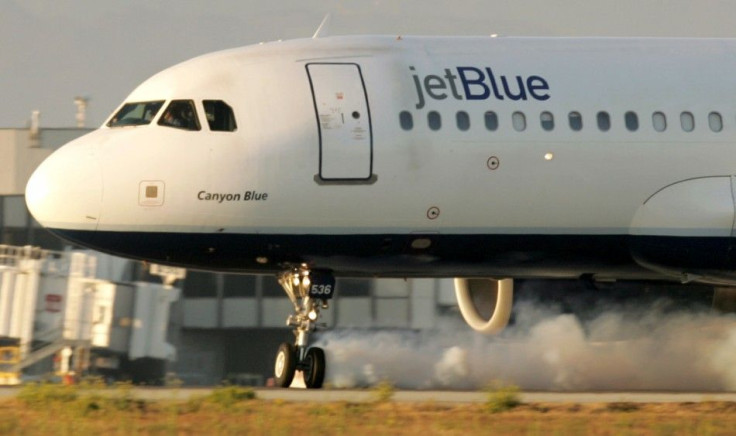JetBlue Pilot’s Psychotic Episode In Prison: Did Sleep Deprivation Drive Captain Clayton Osbon Crazy?

JetBlue pilot Clayton Osbon had a psychotic episode in jail after being arrested for disrupting a cross-country flight by exiting the cockpit and ranting about religion and terrorism. The cause of his psychosis may sound familiar to many pilots: lack of sleep.
The pilot was charged with interference with a flight crew but was let off the hook by reason of insanity last month. Captain Osbon had a brief psychotic episode during the flight caused by a lack of sleep, according to a forensic neuropsychologist who testified during a brief trial.
It is the second notable instance of a JetBlue employee blowing his lid at work, freaking out passengers and the rest of the flight crew. The first came two years ago when flight attendant Steven Slater went on a profanity-laced tirade, reportedly grabbed two beers, engaged the plane's emergency landing chute, slid down and went home to Belle Harbor, N.Y.
Osbon's sleep deprivation may be a more common problem than many care to admit. The National Sleep Foundation released a survey in March showing about a quarter of all pilots in the air admit to running low on nightly rest. The problem is significant enough that 20 percent of pilots admitted to making a serious error while operating a plane as a result of their sleepiness.
NSF's results also showed half of all pilots claimed to rarely if ever get a good night's sleep.
"We found that although pilots are especially focused on obtaining adequate sleep, one in ten can still be classified as 'sleepy.' This is not acceptable. Who among us wants to take a one in ten chance of flying on a plane with a sleepy pilot?" said CPT Edward Edens, PhD of the Walter Reed Army Institute of Research, according to the NSF.
Transportation workers in general are prone to sleep issues resulting from their unusual hours, with pilots having 12.9 hours off between shifts, well short of the 14.2 hours enjoyed by most other transportation workers.
"Transportation workers have challenging schedules that compete with the natural need for sleep. While I'm impressed that transportation professionals nap when they are off duty, we need to better understand how to use naps to reduce sleep deprivation and overcome scheduling issues," said Thomas Balkin, PhD, a sleep researcher from the Walter Reed Army Institute of Research, according to NSF.
© Copyright IBTimes 2025. All rights reserved.





















